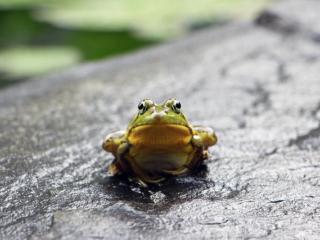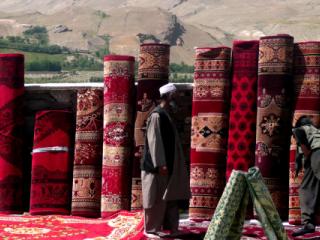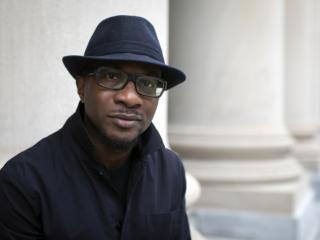One of the greatest walkers of our time, William Helmreich — known for exploring every street in New York City — was an early casualty of COVID-19. But composer David Rothenberg got to walk with him one last time, around wetlands in Queens.More
Interviews By Topic
Humans are not the only creatures who vocalize. Birds, whale and frogs have voices too—but are we listening? Bernie Krause has been recording environmental sounds all over the world since the 1970s. He says it's time for humans to shut up.More
To unpack the history of African musical migration, you have to go back to European colonization, says musicologist Ron Radano. He's been rewriting the history of race and Black music, and he says, "We are all African when we listen."More
Afghan women are complicated. They pray, have affairs, and get mad at their children. But it seems one thing binds them — the landay. Poet and journalist Eliza Griswold went to Afghanistan in 2012 learn more about a type of poem that Afghan women have been sharing since 1700 BCE.More
Anna Badkhen spent a year in the remote Afghan village of Oqa. She got to know the master weavers, who make some of the world's most beautiful carpets.More
In the midst of chaos in her home country, Humaira Ghilzai recently sat down with Charles Monroe-Kane to talk about what might be lost culturally as the Taliban take power.More
Albert Camus’s first novel, "The Stranger," speaks strongly to the search for meaning. It’s the story of an alienated man who commits a senseless murder. Literary critic Alice Kaplan calls it "the perfect Black Lives Matter book."More
The poet Nikki Giovanni, reading her poem "One Ounce of Truth Benefits Like a Ripple on a Pond."More
Is war inevitable? Leymah Gbowee loudly and strongly says no. And she’s got proof.More
On Native American reservations, high school basketball is huge. They have developed a fast-paced style of play called “rez ball.” New York Times reporter Michael Powell spent a season covering the team from Chinle High School in the Navajo Nation.More
Science journalist Mark McClusky tells Anne that the secret to ever-increasing athletic performance is cutting-edge science and technology.More
The 1968 Olympic games changed everything for John Carlos. He and fellow runner Tommie Smith raised their fists in the Black Power salute on the podium in a moment that became known as the most defiant and controversial in Olympics history.More
Teju Cole grew up in Nigeria and then moved to U.S., joining millions of others in the African diaspora. He became an acclaimed novelist and photographer, and now celebrates the cosmopolitan culture of global cities, including Lagos and New York.More
Ghanaian post-colonial theorist Ato Quayson thinks a lot about globalization, diaspora and transnationalism. Because he’s a literary scholar, he decided to "read" a single street — Oxford Street in Accra — as a study of contemporary urban Africa.More
Historian Emily Calacci says the massive migration into African cities isn't following the Western model of urban development. Instead of an infrastructure of roads, railways and electric grids, many African cities rely on "people as infrastructure."More
Why does it seem like we always head into Monday feeling let down? Journalist Katrina Onstad explains how we ruined the weekend, and how to get it back.
More
At one point there were more than 1,500 amusement parks across America. Historian Lauren Rabinovitz says they helped ease the country into a period of rapid technological change.More
Kelly Link writes what she calls "slipstream fiction" — magical realist with a strong dose of weird.More


















